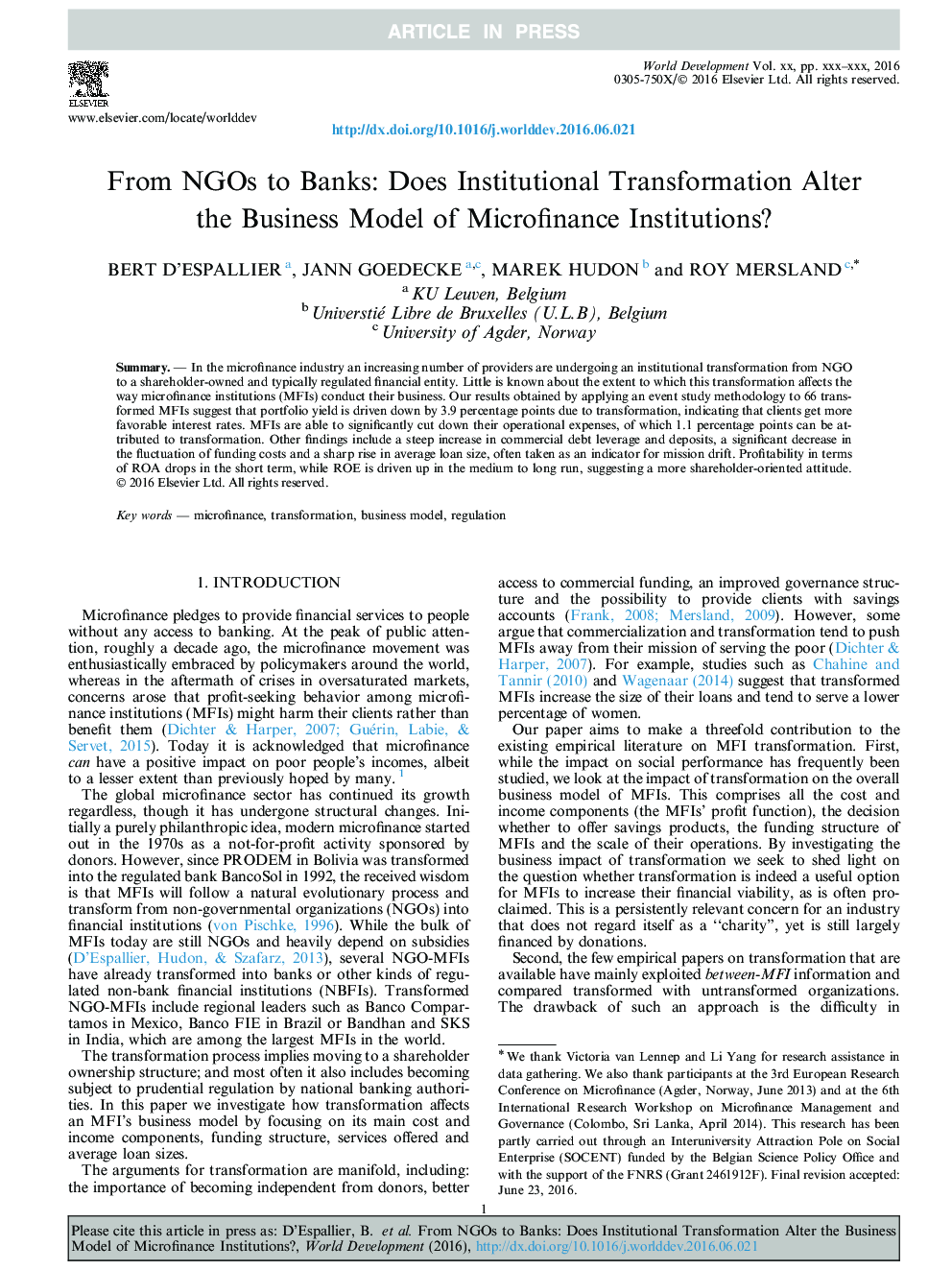| Article ID | Journal | Published Year | Pages | File Type |
|---|---|---|---|---|
| 5105341 | World Development | 2017 | 15 Pages |
Abstract
In the microfinance industry an increasing number of providers are undergoing an institutional transformation from NGO to a shareholder-owned and typically regulated financial entity. Little is known about the extent to which this transformation affects the way microfinance institutions (MFIs) conduct their business. Our results obtained by applying an event study methodology to 66 transformed MFIs suggest that portfolio yield is driven down by 3.9 percentage points due to transformation, indicating that clients get more favorable interest rates. MFIs are able to significantly cut down their operational expenses, of which 1.1 percentage points can be attributed to transformation. Other findings include a steep increase in commercial debt leverage and deposits, a significant decrease in the fluctuation of funding costs and a sharp rise in average loan size, often taken as an indicator for mission drift. Profitability in terms of ROA drops in the short term, while ROE is driven up in the medium to long run, suggesting a more shareholder-oriented attitude.
Related Topics
Social Sciences and Humanities
Economics, Econometrics and Finance
Economics and Econometrics
Authors
Bert D'Espallier, Jann Goedecke, Marek Hudon, Roy Mersland,
